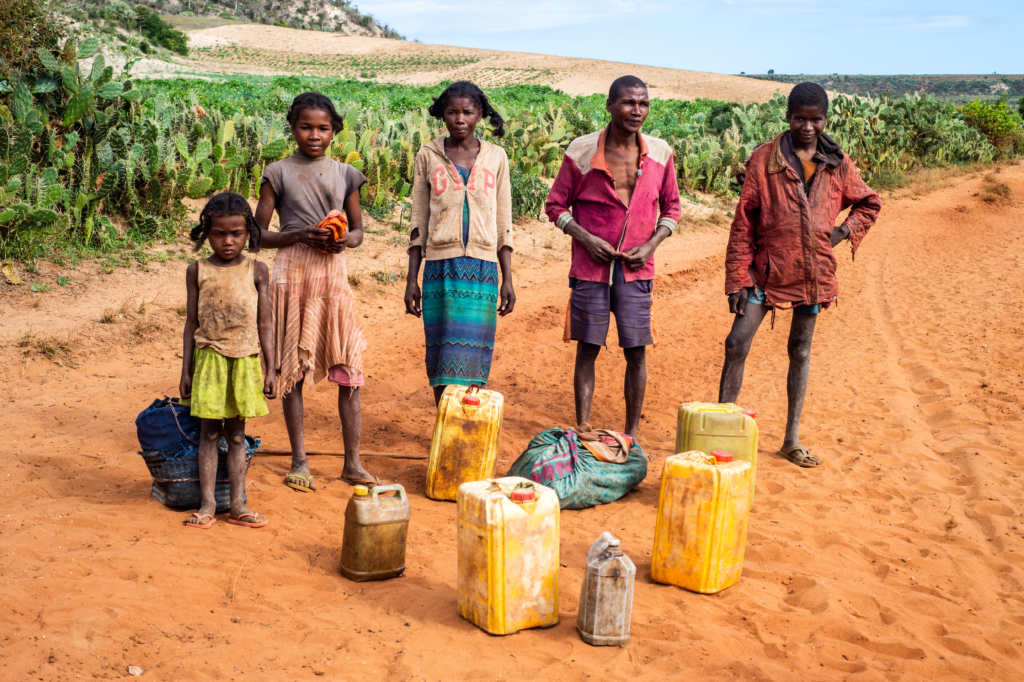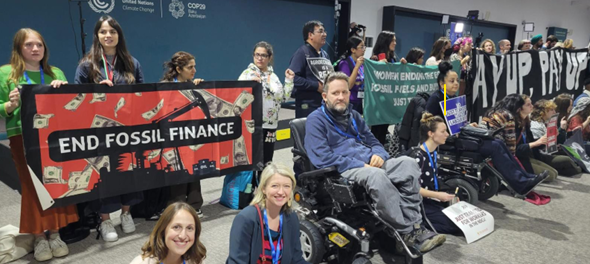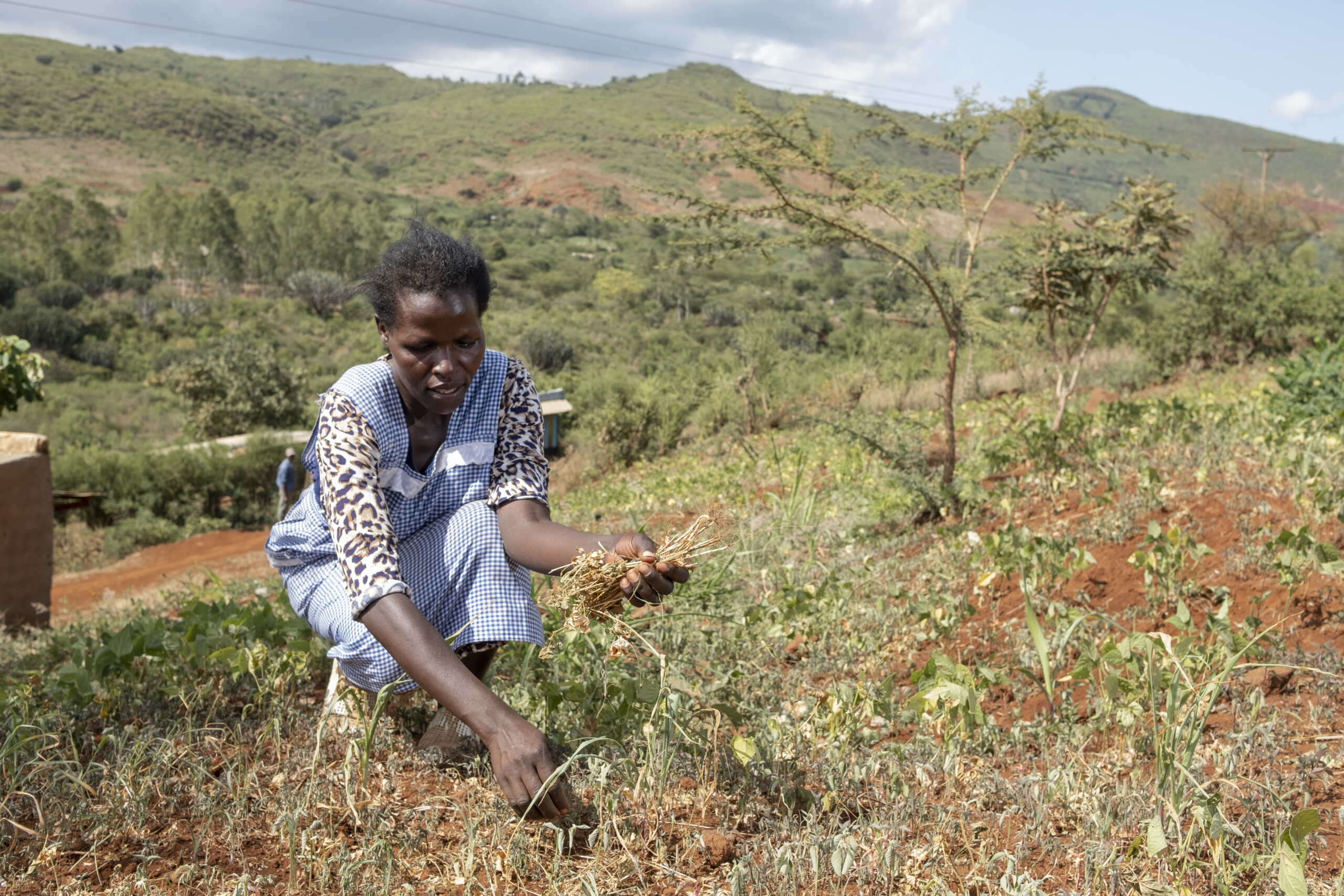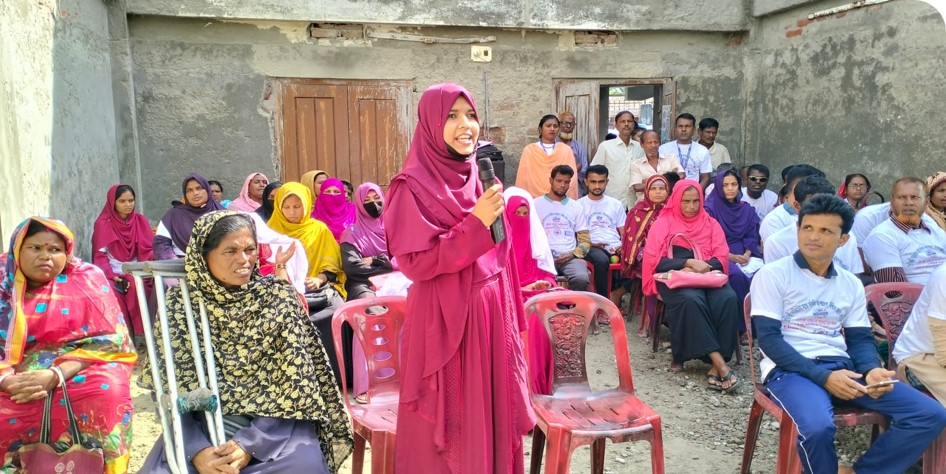New case study shows impact of climate change on persons with disabilities in Southern Madagascar
News | August 29, 2022
CBM Global Disability Inclusion and the Global Greengrants are pleased to share a jointly produced case study on the impact of climate change in Madagascar, the ongoing food crisis and the challenges faced by persons with disabilities and their representative organisations in accessing humanitarian assistance.
During the last four years, the combined effects of climate change, environmental degradation – deforestation and soil exhaustion, the COVID-19 pandemic and the already severe poverty levels, have resulted in one of the worst food insecurity emergencies in forty years in Madagascar.
The case study details the impact of these intersecting crisis on people with disabilities, the barriers they face in community initiatives, their challenges in accessing humanitarian aid and the need for organisations of people with disabilities to be included in climate mitigation and adaptation policies.

behind containers, had to walk miles to get water. © CBM/Viviane Rakotoarivony
Christian Modino Hok, CBM Global’s Humanitarian Director, says:
“History shows that conflicts are the main driver of food crises across the world. East-Nigeria, Yemen, Somalia, South Sudan are examples of it. However, the 2021 to 2022 hunger crisis in Southern Madagascar is not only the worst of the past 40 years in the country. It is considered the first climate change related food crisis in which significant changes in weather patterns that have caused long term drought combined with chronic poverty have put millions of people on the verge of famine. Amongst them are people with disabilities who are some of the most at risk and unacceptably forgotten by both humanitarian and development actors. We cannot keep looking away and neglecting the significant impact that irresponsible and unaccountable human activity is having in countries that contribute the least to climate change. We need to stop pushing the poorest and most disadvantaged communities to desperate life-threatening situations. It is our moral responsibility to advocate for climate action and disability inclusion to be at the centre of the development agendas.”
Mary Keogh, CBM Global’s Advocacy Director, says:
“The climate crisis most impacts the countries who have contributed the least to climate change. From the little research that is available we know that, at national level, policies on climate adaptation and climate mitigation are not actively engaging the perspectives of persons with disabilities and their representative organisations. This neglects the skills and insight they can bring. It also widens inequalities and create more barriers for persons with disabilities in realising their basic rights. Governments, in addition to meeting their 1.5C target, must do better on the inclusion of persons with disabilities in their climate policies and planning. We know this is possible having seen a good example of this following Vanuatu’s newly published National Determined Contributions.”
The case study can be found here and forms part of CBM Global case studies on the impact of climate change on people with disabilities.
https://cbm-global.org/news/new-case-study-shows-impact-of-climate-change-on-persons-with-disabilities-in-southern-madagascar
Related News

One in Five Is Not Enough: The gains on Disability Inclusion have not gone far enough
One in Five Is Not Enough: The gains on...

COP30 Is a Turning Point for Disability-Inclusive Climate Action
As the world gathers in Belém, Brazil, from 10–21 November 2025 for COP30, the message from...

Achieving resilience for all requires funding disability inclusion in DRR
On International Day for Disaster Risk Reduction (DRR) 2025,...
